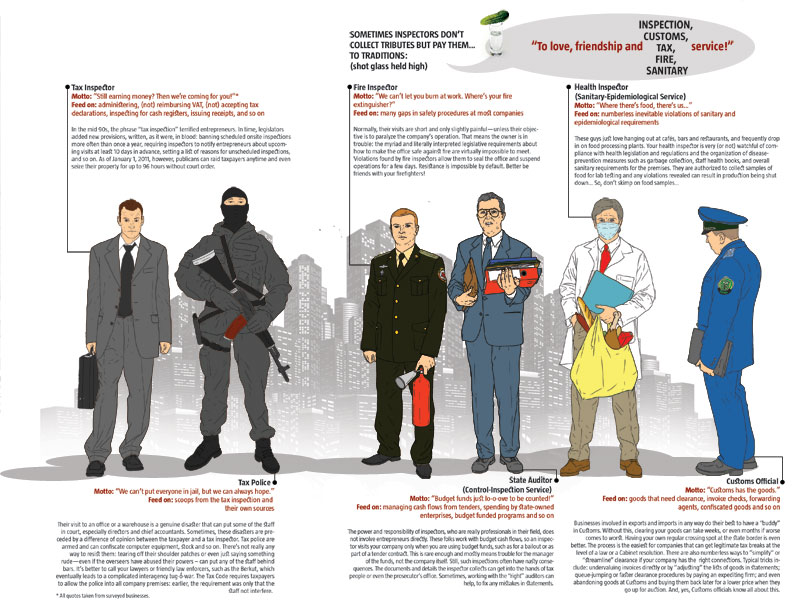Laughing through tears
In Ukraine, domestic business tends to interact with government according to a long-standing, simple rule: the state robs the people and the people steal from the state. Yes, this is an uncivilized practice, but the country’s confusing, convoluted and contradictory legislation, laced with loopholes and ambiguities, makes any other approach barely conceivable. Statutory gaps and drawbacks are cemented in the customs law, with such unspoken components as gifts for officials, commercial services provided to businesses by associated entities, bribes, protection, and a whole range of corruption.
Nominally at least, relations like this often turn both entrepreneurs and their state overseers into lawbreakers—even criminals. But as it is accepted by both parties, this concept has served as a platform for social consensus at the microeconomic level for years. The fly in the ointment is that the latest amendments, especially expanded powers for tax inspectors under the new Tax Code, more power to bailiffs and so on, undermines this socio-economic status quo. The question now is whether the reformers realize the likely effect of their intent to effectively legalize their robbing of the nation with impunity.


